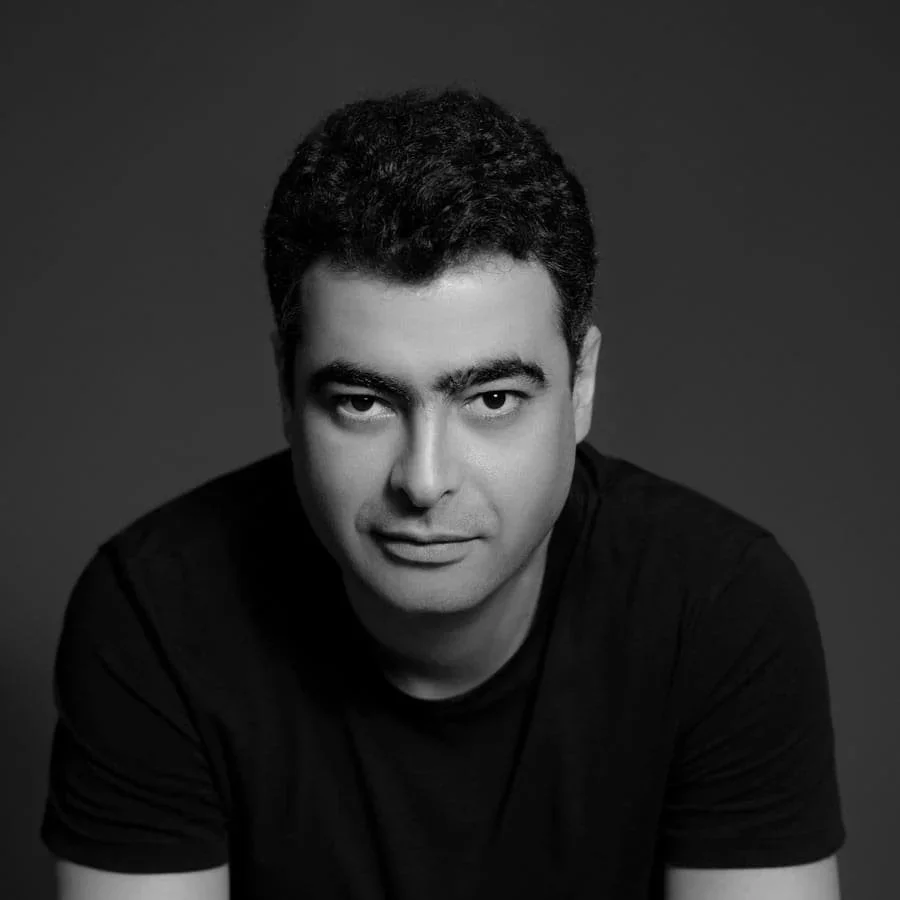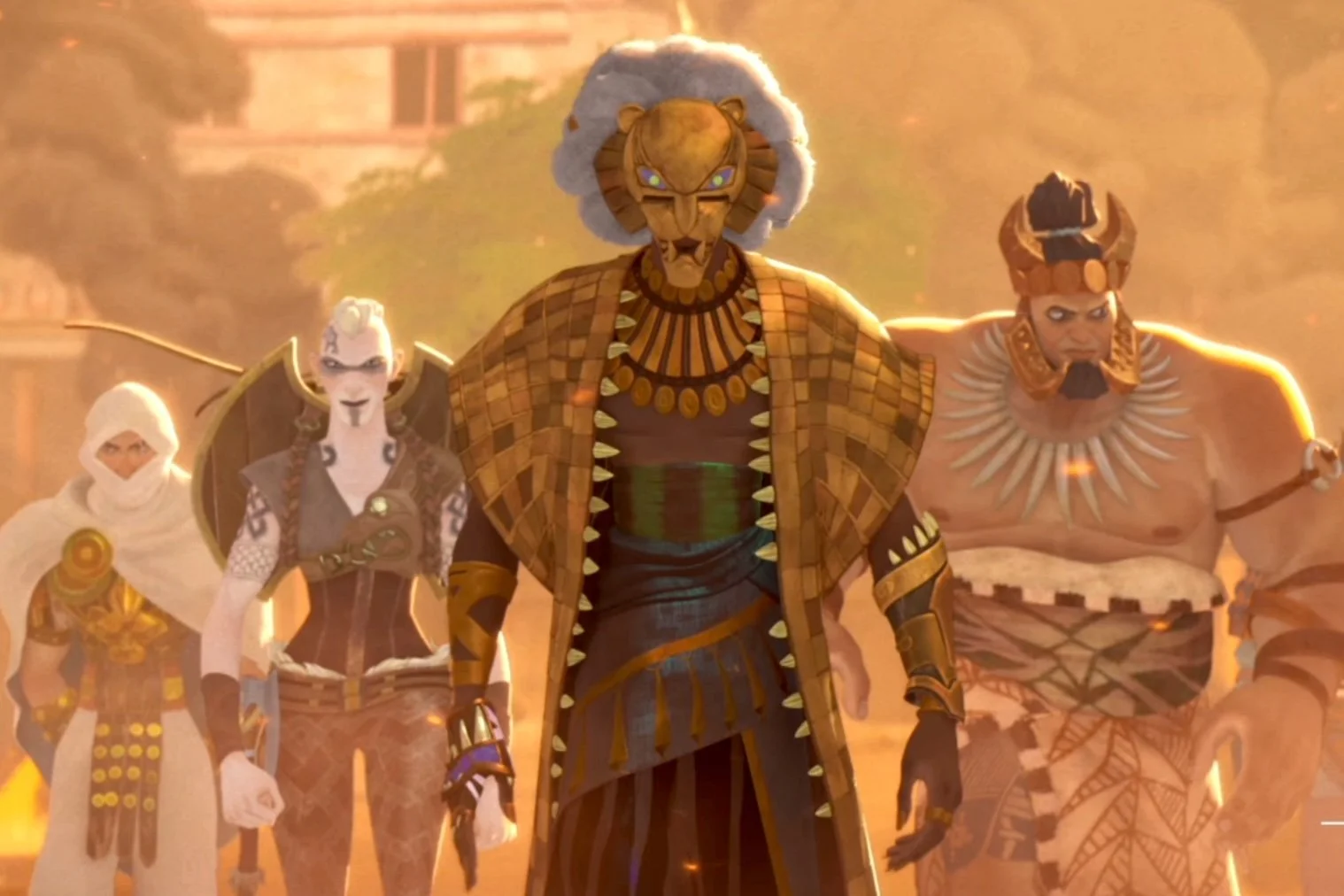Hesham Nazih Talks Time-Sprawling Score of “The Eyes of Wakanda”
In 2018, Ryan Coogler’s Black Panther broke the Marvel mold and reignited a cinematic universe. Black Panther: Wakanda Forever was released in 2022, and the story of Wakanda was continued in this year’s Ironheart television series. That’s not the end of Black Panther and Wakanda, though — far from it. Released on August 1, the new Disney+ animated series, The Eyes of Wakanda, marks the first show of Phase Six of the MCU. The series’ four episodes are self-contained stories that chronicle the adventures of the Hatut Zaraze, Wakandan warriors, as they travel around the world to retrieve vibranium artifacts. When looking for a composer for the series, The Eyes of Wakanda called upon Hesham Nazih, who scored the Moon Knight series, but that wasn’t the beginning of his career.
“I remember the day,” Nazih reminisces. “I was watching a movie here in Cairo, Egypt. I was maybe twelve years old. It was like the music was taking over and made a huge, huge impact in my chest and heart as I was watching and listening. I was like, I want to do this. I want to do this to people when they’re watching films. I want to have the same effect on them.”
courtesy of Craft-Engel Management
Music is especially important to the superhero viewing experience. Some of the most famous musical cues come from these epic stories of heroism, and it’s the job of the composer to underscore those moments to elevate the emotions of the audience. After his experience working on Moon Knight, Nazih understood what was expected of him when contributing to stories in the Marvel Cinematic Universe. As intimidating as it sounds, Nazih wasn’t fazed.
“The fabulous people at Marvel really made me feel like I’m one of the family. They made me feel like we’ve been friends for years. They explained everything to me clearly and carefully. So the second time was like, I’m home again.”
It may have felt like home, but this time Nazih was working on an animated project, the first of his career. Since he was brought onto the project at an early stage, the animation was still quite sketchy. Nazih began scoring to these unfinished animations, refining and refining as the animators made progress on the project.
“I was like, what is this? How am I going to score that?” laughs Nazih. “And a few weeks later, they sent me more. I started to see movements, colors. Not finished, but it’s there. It still felt unfinished up until the end when I received the final rendering. I was almost done with the score and I was like, wow. It’s stunning. The picture is stunning. I didn’t see that coming.”
“By that time, my music, to me, felt so thin and poor. It’s not complementing this incredible picture,” explains Nazih. “I reworked lots of scenes and lots of passages to make it feel suitable. I added more orchestration. If you’re scoring to a very small window of picture, no matter how good the picture is versus scoring to a very wide screen, the magnitude feels bigger and you have to build up the score to match.
courtesy of Disney+/Marvel
“The same goes with the colors. They give you emotions, feelings, and depth that I felt should carry through the music and it should compliment the picture,” continues Nazih. “I did not demolish everything I wrote, but I added more feeling, more depth, more nuance to the music.”
A lot of Nazih’s scoring for The Eyes of Wakanda was the result of trial and error. One might not think there’s much difference between writing music for live action and for animation, but Nazih points to the movement in each to be distinctly different.
“You don’t understand quite how different it is until you work on an animated piece. It has a certain special craft to it. It was a bit of a learning curve to me because I spent countless hours scoring for a scene that seemed all right, but the music wasn’t functioning well throughout the scene. I couldn’t understand the reason why. It was a bit of trial and error until I thought of the right mechanics for the scenes.”
The four episodes of The Eyes of Wakanda take place in 1260 BC in Crete, during the Trojan War in 1200 BC, in China in 1400 A.D., and in Ethiopia in 1896. It’s a series that sprawls across time and space, held together by Nazih’s score. No matter the era or the location, everything is united by the theme that plays at the beginning of each episode.
“I would listen to music from everywhere. Asian music, Mediterranean music, African music. My mind had to digest all these resources to create the score for the episodes,” recounts Nazih. “I came up with a main theme for the whole thing that acted like the backbone of the score for each and every episode. It’s always there at the key moments for each mission in each episode. It was always the main theme that was governing the score.”
One of the most striking attributes of the main theme is the vocals that soar through the selection. Nazih’s reasoning behind their inclusion?
“It goes straight to the heart. Vocals carry the influence and the emotion in a straightforward way. No interpretation. No explanation. No nothing. The moment you hear the human voice singing, your heart opens.”
courtesy of Disney+/Marvel
Before scoring Moon Knight, Nazih considered himself a casual superhero fan. It was through the experience of that first score and The Eyes of Wakanda that Nazih says superheroes earned a special place in his heart. What changed was the immense amount of time spent researching and working in this world.
“The process of working first on Moon Knight was what started the change. I needed to become familiar with the character first, before even looking at the picture. Then I had to write music for him. I needed to find a musical angle to penetrate this persona,” describes Nazih. “I started to relate to him day by day. I feel more for him. His struggle, his conflicts, what he’s after, what he’s suffering from, what he desires. We became friends.”
“It can’t just be a character who pops up on-screen with a huge brass fanfare or something. It has to be a flesh-and-blood musical sound.”
Support Your Local Film Critic!
~
Support Your Local Film Critic! ~
Beyond the Cinerama Dome is run by one perpetually tired film critic
and her anxious emotional support chihuahua named Frankie.
Your kind donation means Frankie doesn’t need to get a job…yet.
Follow me on BlueSky, Instagram, Letterboxd, YouTube, & Facebook. Check out Movies with My Dad, a new podcast recorded on the car ride home from the movies.



